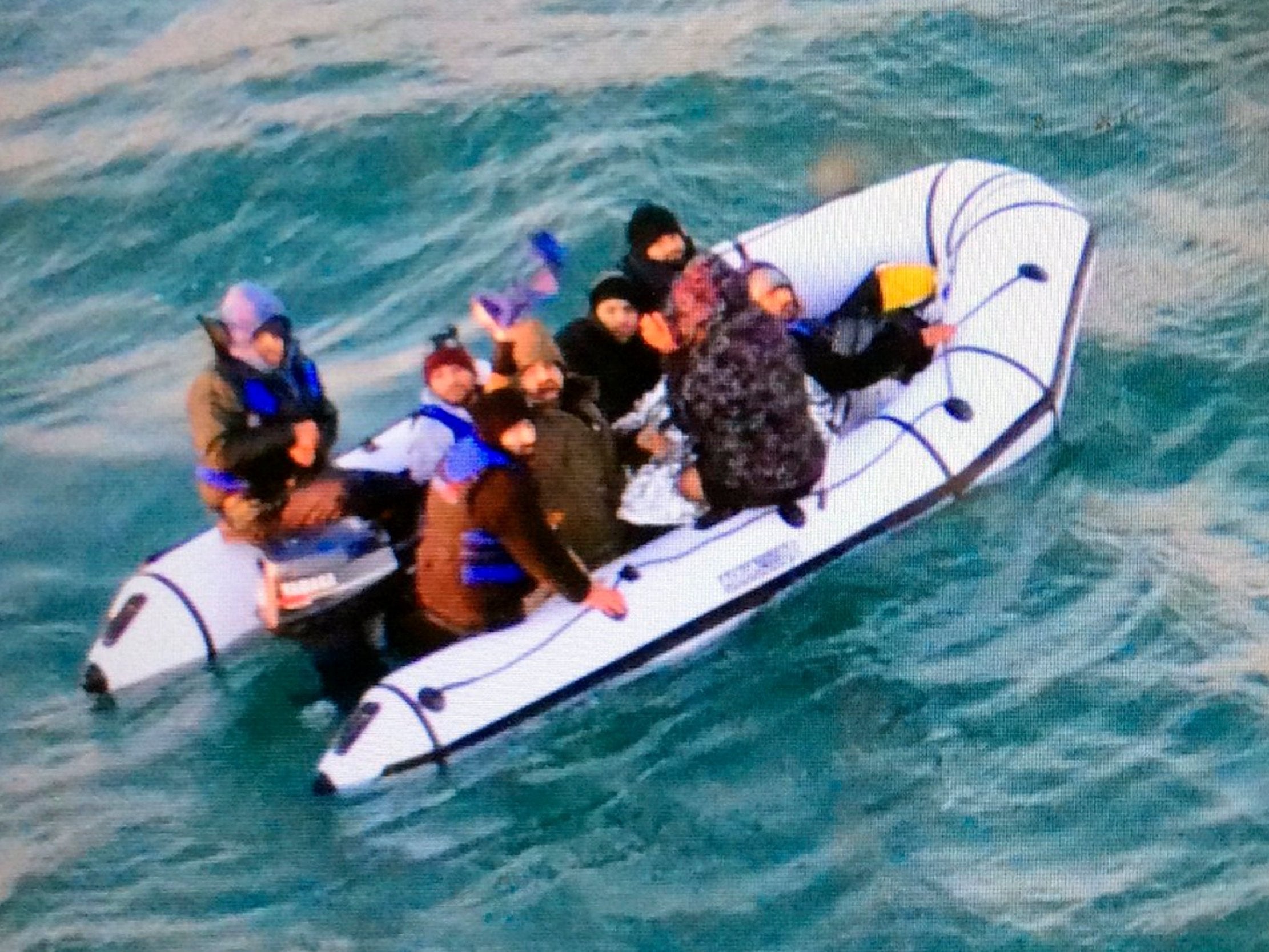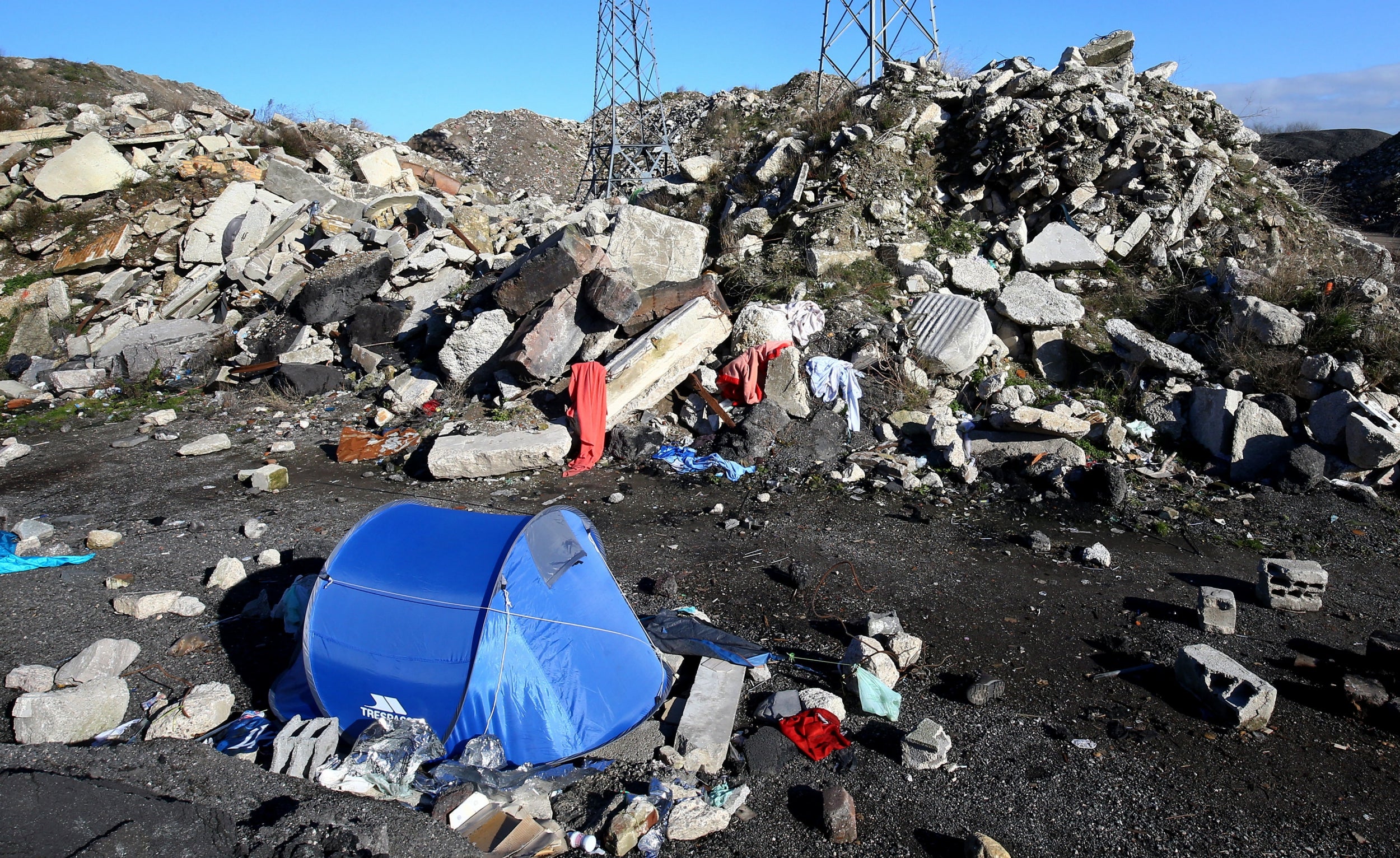Asylum seekers who crossed Channel from France over weekend could be forced back to Europe
Charity workers warn those returned to continent will attempt dangerous sea crossings again

Your support helps us to tell the story
From reproductive rights to climate change to Big Tech, The Independent is on the ground when the story is developing. Whether it's investigating the financials of Elon Musk's pro-Trump PAC or producing our latest documentary, 'The A Word', which shines a light on the American women fighting for reproductive rights, we know how important it is to parse out the facts from the messaging.
At such a critical moment in US history, we need reporters on the ground. Your donation allows us to keep sending journalists to speak to both sides of the story.
The Independent is trusted by Americans across the entire political spectrum. And unlike many other quality news outlets, we choose not to lock Americans out of our reporting and analysis with paywalls. We believe quality journalism should be available to everyone, paid for by those who can afford it.
Your support makes all the difference.Almost 50 migrants who crossed the English Channel in small boats over the weekend could be forced back to continental Europe by British authorities.
Three children were among a total of 47 people intercepted by the Border Force, all of whom gave their nationalities as Iranian or Iraqi.
The Home Office said two cutters were patrolling waters between England and France, after a joint action plan to reduce crossings was agreed between the countries.
“Anyone crossing the Channel in a small boat is taking a huge risk with their life and the lives of their children,” a spokesperson said.
“It is an established principle that those in need of protection should claim asylum in the first safe country they reach and since January more than 50 people who arrived illegally in the UK on small boats have been returned to Europe.”
On Saturday, two small boats were spotted crossing the Channel and the Border Force intercepted people at “various locations” around Dungeness in Kent.
They were medically assessed before being transferred to immigration officials, to whom they gave their nationalities as Iranian and Iraqi.
A Border Force cutter later intercepted a small boat with 11 men on board, who were taken to Dover and gave the same nationalities.
Six more people were found by police on the Sussex coast on Sunday, after arriving on another small boat.
Three adults were being interviewed by immigration officials, while children were taken into the care of social services. They also gave their nationalities as Iranian and Iraqi.
At around noon on Sunday, a coastal patrol vessel intercepted a small vessel with eight men and two women on board, who said they were Iranian and were transferred to the Border Force.
As of 22 July, there have been 1,150 attempts by individuals to cross the Channel since the start of 2019.
Of those, 725 people arrived in the UK and 425 were intercepted by French authorities.
Despite the high-profile closure of the “jungle” camp in Calais, migrants have remained at informal camps along the northern coast of France and smugglers continue to open new routes across Europe from arrival points in Italy, Greece and Spain.
Charity workers said some asylum seekers forced back to France were journeying north to attempt to cross the Channel again.
The Help Refugees charity said the number of migrants in Dunkirk has increased and that those arriving, including Iraqi-Kurds and Iranians, appeared to have more funds than those in Calais.
Maddy Allen, its field manager for northern France, said attempted Channel crossings had been “fairly constant” despite the crackdown.
“The increase in security measures increases the prices that people are paying to make the journeys, but the real gap is that there are no legal or safe routes of passage,” she told The Independent.
“People will be removed from the UK and scattered across Europe, but we do see the ones returned to France back here and making those journeys again.
“It’s important to note how dangerous those crossings are and how the use of the Dublin Regulation in this situation doesn’t resolve anything for anyone. People just make the crossing multiple times.
“If they’ve got their mind on the UK or have links, friend and families there, they will attempt those crossings again.”
Last month, Sajid Javid said the government would continue returning people to France or other European countries if their asylum applications fail.
Shortly before being made chancellor in Boris Johnson’s government, the former home secretary said the move was allowed under the Dublin Regulation but had “broken down” since the start of the Mediterranean refugee crisis.

Mr Javid said that of the 53 migrants returned to Europe this year, 25 had been transported to France.
“We have stepped up our returns activity,” he added. “We are getting increasing co-operation in returning migrants to France.”
Mr Javid declared the crossings a “major incident” in December and in January the British and French governments announced a new agreement that would see the UK pay £6m for increased security along the French coast.
The Home Office said the money would fund additional surveillance and security on French beaches and ports, using drones, radar, night goggles and number plate recognition capability for UK and French border and maritime teams to spot smugglers.
The increase in Iranian migrants is believed to be partly caused by Serbia’s decision to relax visa rules between August 2017 and October 2018, leading to thousands legally flying to Belgrade and journeying onwards through Europe.
Mr Javid told the Home Affairs Committee the route through Serbia had been “shut down”.
A report by the National Crime Agency (NCA) said boat crossings, mostly by Iranians, started increasing in October last year but still represented “only a small proportion of all clandestine attempts to enter the UK”.
The NCA has arrested suspects for allegedly arranging some of the crossings but said that while some launches involved criminal groups, others were opportunistic.
Join our commenting forum
Join thought-provoking conversations, follow other Independent readers and see their replies
Comments